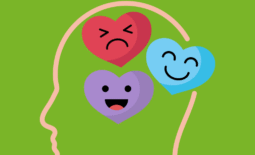When Shame Makes You Hustle for Your Worth
Why You Overdo, Overthink, and Overextend—Even When You’re Tired of It
There’s a kind of tired that no amount of sleep can fix.
It’s the exhaustion that comes from constantly trying to prove you’re enough – by being helpful, agreeable, accommodating, or successful.
It’s the burnout that creeps in when you say yes out of guilt, keep the peace at your own expense, or chase perfection so you won’t be judged.
And beneath it all?
Shame.
Shame Doesn’t Always Shout—Sometimes, It Hustles
Shame doesn’t always show up as a loud inner critic. Sometimes it shows up like this:
- “I should say yes… they’re counting on me.”
- “I need to fix this… it’s my responsibility.”
- “If I don’t give 110%, people will think I’m slacking.”
- “If I rest, I’ll fall behind.”
We start living from a place of performance, not presence.
And without even realizing it, we trade authenticity for approval.
Because somewhere along the way, we learned:



The Real Cost of Shame-Driven Hustle
When we operate from shame, we don’t just over-function, we disconnect from who we really are.
- We lose touch with our needs because we’re so focused on meeting everyone else’s.
- We lose our voice in conversations because we’re afraid of rocking the boat.
- We forget what rest feels like because the idea of slowing down makes us feel guilty.
Over time, shame convinces us that being ourselves—without proving, fixing, or pleasing—is not enough.
But here’s the truth:
You don’t need to hustle for your worth.
You don’t need to earn rest, prove your value, or be perfect to belong…at least to belong to genuine people who truly care about your well-being. It’s one of the biggest reasons why I created my course, because it has the group coaching component. I watch as it gives members a safe place to learn, grow and heal.
What to Try Instead
You don’t have to overhaul everything overnight. But here are a few gentle starting points:




You are not your hustle. You are not your performance. You are not just the role you play in other people’s lives.
You are already enough—especially when you stop trying so hard to be.




